Cheese is not the ultimate favorite food of mice. They prefer foods that are sweet and have high carbohydrate content. Hence, they would choose chocolate over cheese.
However, these things are not enough to meet the needed nutrition. Fortunately, these critters are omnivores, so they almost eat everything, which will be enumerated in this article.
What do mice eat? The dietary needs of these rodents are composed of:
- Plant food – Nuts, seeds, grains, tubers or roots, leaves, stems, bark, and wood; Fruits: apples, bananas, and more; Vegetables: beans, broccoli, Brussel sprouts, and more.
- Other animals – Insects, non-insect ad terrestrial arthropods, carrion.
- Pellets – The pellets for mice are brown, hard, and tiny blocks filled with the necessary vitamins, protein, minerals, and other nutrients.
Mice can have varieties of food, so it’s safe to say that they’re not picky eaters. A mouse can survive with an ounce of food and water in a day. To better understand mice’s diet, read on.
Table of Contents
Mice Diet | A Closer Look
One of the problems of having mice in your house is that they munch everything, even the electric wires, soap, and other things.
Meanwhile, a study has discovered that longer fasting between meals leads to improvement of health and lifespan of mice.
You may be curious if there’s something that they don’t like. Let’s take a closer look at their diet.
Do Mice Eat Cheese?
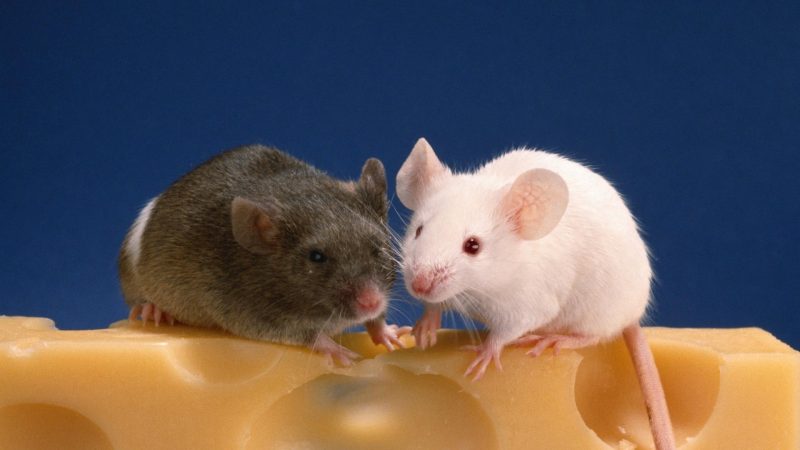
Research has revealed that mice can eat almost everything, including those without nutritional value. Thus, they can eat cheese but prefer something sweet the most. Putting cheese as bait won’t always succeed.
However, a study led by Dr. David Holmes found that mice sometimes don’t like cheese because of the pungent aroma.
A mouse would likely have cheese when it’s starving, and there’s no other choice. But you can’t use this food to lure this rodent into a trap. It only applies to animated shows or movies but not in reality.
Do Mice Eat Grass?
Since mice see plants as a food source, they eat grass.
Can Mice Eat Chocolate?
Mice love sweet food, so it’s no wonder that they eat chocolate.
Do Mice Eat Roaches?
Mice eat roaches as insects contain a high amount of protein. It’s only difficult for a mouse to catch them since they move so fast. Anyway, mice are only after roaches if there’s no more food option.
As long as roaches are not contaminated with poison, mice will eat them even though they’re dead. This state makes it easy for mice to catch them.
They still carry essential amino acids and minerals. Their dead bodies have a smell of decaying protein that entices predators like mice.
Do Mice Eat Meat?
Mice eat meat because they’re omnivores. They can take different kinds of meat such as red meat, poultry, and rotten fish.
These rodents don’t intentionally look for meat, but they won’t let it pass when it’s right in front of them. The meat is usually found in dumpsters, garbage cans, or straight from the roadkill.
Can Mice Eat Grapes?
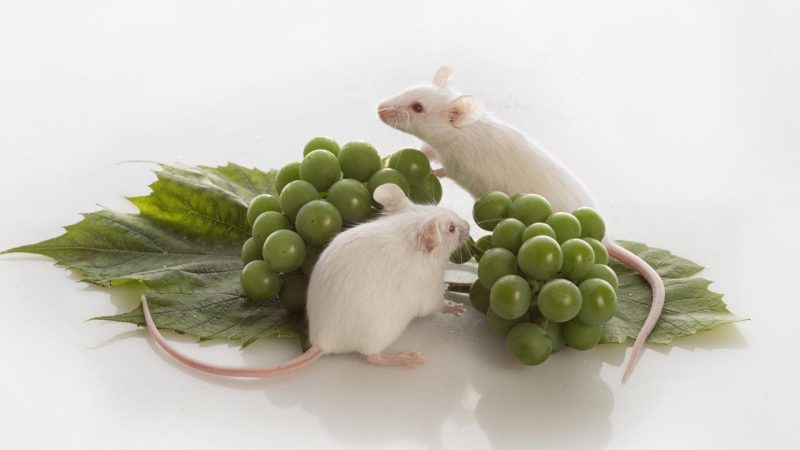
Grapes or raisins may sound healthy for mice. But they’re poisonous, and they can cause diarrhea. Apart from grapes, rhubarbs and walnuts are also poisonous despite their love for nuts.
Do Mice Eat Slugs?
It’s beneficial to your garden when mice eat slugs. However, these critters are more interested in some plants like corn and sunflowers. It’s the reason why slugs are part of their meals.
Do Mice Eat Spiders?
Mice eat spiders since they like munching insects.
What Does a Mouse Eat In the Wild?
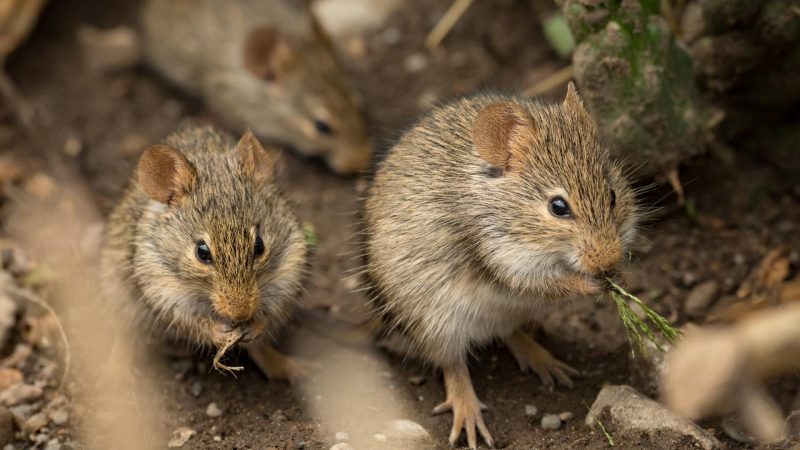
A mouse eats whatever is available in the wild. It primarily hunts for grains and acorns. Moreover, it’s also interested in meat and carrion. When a mouse enters a house, it learns to practice a new diet due to food diversity.
The main food that it’s attracted to is chocolate. To be specific, it loves chocolate that has high dairy content and little cocoa. Thus, chocolate made by a baker is a total hit to the mouse. Its second favorite is peanut butter.
The next food that the mouse likes is rich in carbohydrates since it provides energy that they use in running speedily. So, it will feast on cereal, rice, and other kinds of grains.
Although mice have favorites, they find pleasure in sampling every food that they can find. They’re curious about different kinds of food. Due to their persistence, they make holes in food containers.
What Do Deer Mice Eat?
Deer mice are omnivores that have sharp incisors to chew even on hard-coated seeds and exoskeleton of insects. During summer, they eat earthworms, slugs, and insects.
They also feed on carrion, fungi, and fruits. Interestingly, deer mice store their food for later use in tree cavities, bird’s nests, and holes in the ground.
What Do Baby Mice Eat?
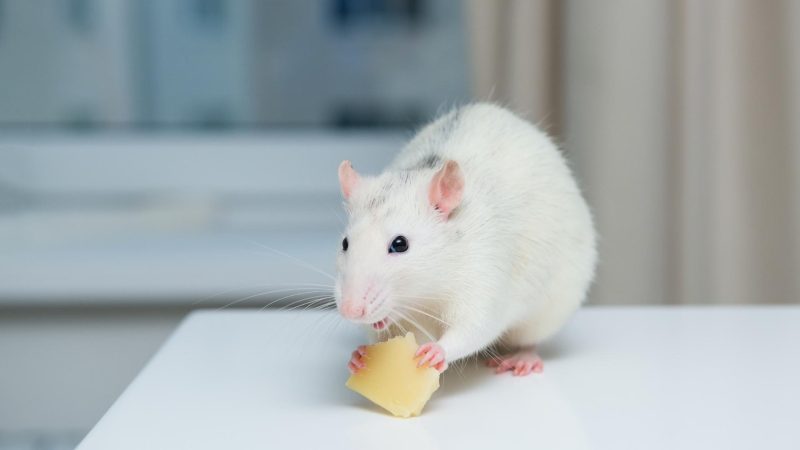
Baby mice are fed with their mother’s milk for 21 to 28 days from birth. After this period, they become independent and hunt for solid foods like seeds, nuts, crumbs, and insects.
What Eats Mice?
Mice are eaten by small predators such as cats, falcons, ferrets, foxes, hawks, large lizards, mongooses, snakes, and weasels. Since mice reproduce quickly, it’s easy for them to recover from predation.
Do Mice Cause Damage Property?
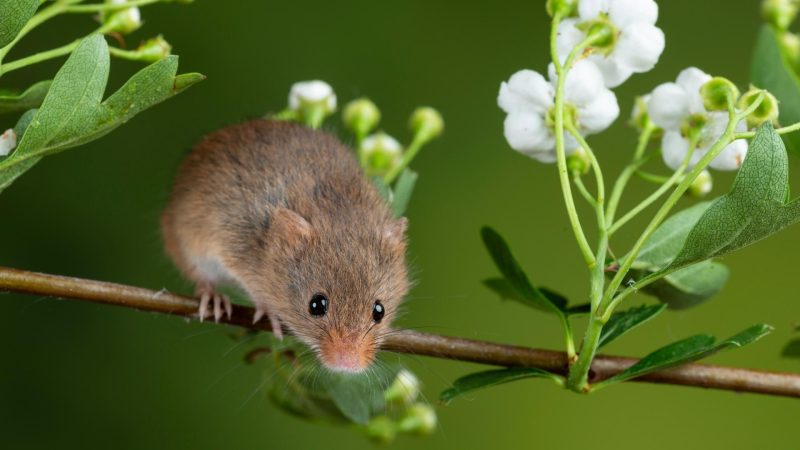
The damage that mice caused can be seen in the agricultural sector as they can ravage crops. Furthermore, they dwell in barns, houses, and other buildings. They’re known to destroy furniture, woodwork, upholstery, and clothes.
Signs of Mouse Infestation
It’s rare to see a mouse around. You’ll only know their presence when there are signs of a mouse infestation:
- Droppings under the sink, next to food packages, and inside cupboards and drawers
- Nesting materials such as dried plant parts, paper, or fabric
- Chewing marks on food packaging
- Holes created as an entrance to the house found on floors and walls
- The stale smell from a secluded area
How to Get Rid of Mice?
There are three ways to get rid of mice:
Cleaning Up
- Take out your trash regularly and clean up the clutter.
- When storing food, it’s best to use rodent-proof containers. Clean them frequently with water and soap.
- Be aware of their possible nesting sites. They can be in woodpiles, elevate hay, and trash cans that are at least a foot away from the ground. Separating the woodpiles from the house at least 100 feet and putting them farther away is much better.
- Discard the old tires, cars, and trucks that you no longer use. Mice would love to make these things their homes.
- The grass and shrubbery around your house should be kept short and well-trimmed.
Sealing Up
You have to find the holes made by mice inside and outside your house before proceeding to seal up. Once you’ve found them, insert steel wool into small holes and apply caulk to keep it in place. Garages and outbuildings should also be inspected for holes. When you don’t block the entry holes, the mice have the freedom to move around.
Setting a Trap
- Choose a trap that is designed for mice and read the instructions carefully on how to set it.
- Put pea-sized peanut butter on the trap.
- The bait’s end of the trap should be next to the wall, so it forms a ‘T’. This is done as mice run next to the wall or other things for safety, and they don’t like being exposed. You can place traps everywhere in the basements, attics, and crawl spaces since they’re the areas that a mouse would roam frequently.
- You’ll need to put traps in outbuildings and shelters that are likely to be inhabited by mice. Live traps and glue traps are not recommended because a mouse got stuck alive and pee. It only enhances the exposure to diseases that are caused by its urine.
What Else Do Mice Like to Do?
Apart from food, mice also seek warmth, especially when the temperature is low. The openings of building walls are very inviting to them because of this factor. Some mice make the water heater their nesting place.
Cluttered areas can also offer warmth to the mice. They’re the appropriate hiding place for these rodents. Piles of paper, boxes, and drawers are an ideal breeding ground for them.
Summary
Since mice are omnivores, they eat almost everything. Their favorite foods are sweets and the ones rich in carbohydrates. But they can just eat things that come their way as they’re not picky. However, grapes, walnuts, and rhubarbs are poisonous to them. Food search is usually the main cause that they become a nuisance for humans as houses offer a lot of varieties.
List of Sources
Longer Daily Fasting Times Improve Health and Longevity in Mice
Feeding Behavior of Mice Under Different Food Allocation Regimens